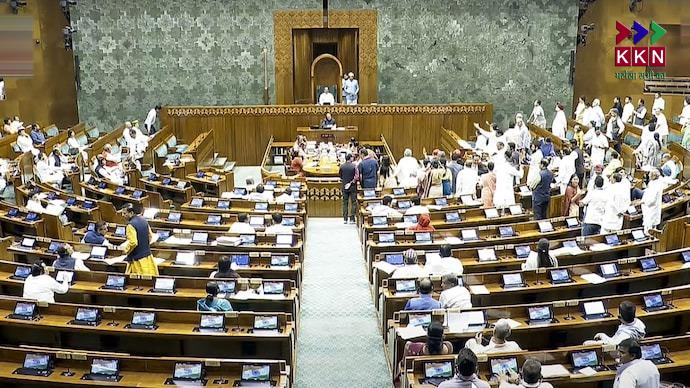KKN Gurugram Desk | The Waqf Amendment Bill 2025 has been passed in the Lok Sabha, sparking heated debates among opposition parties. The bill received 288 votes in favor, while 232 MPs voted against it. Today, the bill will be tabled in the Rajya Sabha, where further discussions and opposition reactions are expected.
Article Contents
Opposition Criticizes the Waqf Amendment Bill 2025
Opposition parties, including the Congress, have strongly opposed the bill, alleging that the government is using it as a distraction from economic issues and tariff hikes. Congress leaders argue that the bill could have far-reaching consequences and needs further discussion.
Speaking on the bill, a senior Congress leader said,
“The government is introducing this bill to divert public attention from the increasing economic crisis and tariff hikes. Instead of addressing real issues, they are trying to push a divisive agenda.”
On the other hand, the government has defended the bill, stating that the amendments are essential for better regulation of Waqf properties and to prevent illegal encroachments.
Key Highlights of the Waqf Amendment Bill 2025
-
Lok Sabha passed the Waqf Amendment Bill with 288 votes in favor and 232 against.
-
The bill will be presented in the Rajya Sabha today for further debate.
-
Opposition parties, including Congress, have raised concerns about its potential impact.
-
The government claims the amendments are necessary for better management of Waqf properties.
What is the Waqf Amendment Bill 2025?
The Waqf Amendment Bill 2025 proposes changes to the existing Waqf Act, which governs the management and regulation of Waqf properties in India. Waqf properties include mosques, dargahs, graveyards, and charitable institutions that are managed by the Waqf Boards in different states.
This bill aims to bring more transparency and accountability in the administration of Waqf properties. It also seeks to curb illegal encroachments and ensure that Waqf assets are used for their intended purposes.
According to government sources, the amendments will help in streamlining the process of Waqf property registration and reduce disputes related to ownership and misuse.
Political Reactions and Public Response
The Bharatiya Janata Party (BJP) and its allies have supported the bill, emphasizing that it will help in eliminating corruption and improving governance in Waqf-related matters.
However, opposition leaders from Congress, Aam Aadmi Party (AAP), and Trinamool Congress (TMC) have called it an attempt to interfere in the administration of religious properties.
Senior Congress leader Rahul Gandhi said,
“The government should focus on addressing inflation and unemployment rather than bringing controversial bills to create divisions in society.”
Meanwhile, Muslim organizations have expressed concerns over certain provisions of the bill. Some scholars and activists argue that the government must consult religious leaders before making any amendments to the existing Waqf laws.
Legal Experts Weigh In
Legal experts have mixed reactions to the bill. Some believe that the amendments are necessary to modernize Waqf management, while others argue that certain clauses could lead to government overreach.
A senior lawyer specializing in property laws stated:
“While some reforms are necessary, the bill should ensure that the autonomy of Waqf institutions is not compromised. The government must take a balanced approach.”
As the bill moves to the Rajya Sabha, it is expected that more legal and policy experts will present their views on the proposed changes.
What’s Next for the Waqf Amendment Bill 2025?
With the bill passing the Lok Sabha, all eyes are now on the Rajya Sabha debate. The ruling party has majority support in the lower house, but the upper house could see a more intense discussion.
If the bill gets approved in Rajya Sabha, it will move forward for presidential assent, after which it will become law. However, if it faces strong resistance, there could be demands for further amendments or referrals to a parliamentary committee for deeper review.
Given the significance of Waqf properties in India’s religious and cultural landscape, the bill is expected to remain in the political spotlight for the coming weeks.
The Waqf Amendment Bill 2025 has opened up a major political debate in India. While the government sees it as a necessary reform to bring transparency and accountability, the opposition views it as a political move to divert attention from economic challenges.
As the bill heads to Rajya Sabha, the nation will closely watch how the discussions unfold and whether any further changes will be made before it becomes law.
For more live updates on the Waqf Amendment Bill 2025, stay tuned to KKNLive.com.




